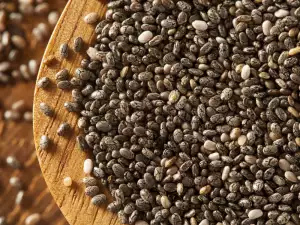As we have said many times and as you know, our body needs vitamins and minerals daily. Today we will focus on vitamin D in particular. When winter is over and spring comes, the levels of this vitamin in the body are the lowest. This is due to the fact that during the winter months we do not expose ourselves to sunlight or this happens in very rare cases.
What is vitamin D
It is a type of fat-soluble vitamin that functions as a hormone. It regulates the process of building calcium and the absorption of calcium and phosphorus from our intestines. It is also involved in the process of transporting calcium between bones and blood. Our body has the ability to produce them only and maintain its healthy levels, as long as we spend enough time in sunlight. Our body can produce between 10,000 and 25,000 IU (international unit) of vitamin D per day if our body is exposed to light long enough.
The amount of this vitamin depends on:
- Which part of the day we stay in the sun - our skin produces more vitamin D in the middle of the day;
- Much depends on where we live - If we are closer to the equator, it is better for us. The more warm the months of the year, the better;
- It also depends on the color of our skin - if our skin is light, it produces vitamin D faster and if it is dark, it produces less;
- It also depends on which part of the skin is exposed to the sun - the larger the part that we expose to the sun, the more vitamin D is produced.
Reference values and recommended intake of vitamin D
Before we share the recommended daily values of vitamin D, we must say that there are different units of measurement by which the vitamin is measured, namely:
- nanogram per ml;
- nanomolar per liter;
- microgram per liter;
- other international units.
Recommended daily intake of vitamin D
The European Food Safety Authority recommends 20 g per ml or 50 ml as a good value for all people.
In most cases, 4 drops a day of Vitamin D in liquid form are recommended. If you are sick, the number of drops can be increased to 6.
Vitamin D intake is very individual and depends on age and health. In any case, we should consult a doctor who will tell us what is best for us.



















Comments